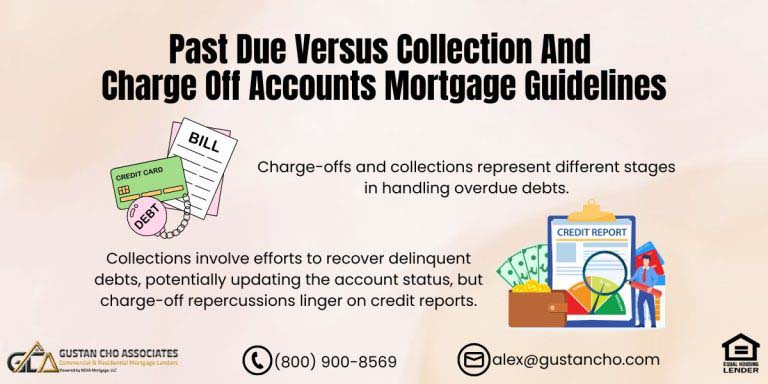This guide cover learn how to use money and not let money use you. There’s more to managing your finances than just breaking even. You also need to learn how to make your money grow and making it work for you. You don’t even need to have mad math skills to do this either. If you know how to add and subtract, you’re basically good to go. All you’ll need is the right attitude and the right know-how, and the rest should take care of itself.
Take Charge of Your Money Instead of Letting Money Control You
Knowing how to manage money well is one of the most important life skills you can have. It gives you the freedom to choose and live how you want. When you learn to use money the right way, you stay in charge of your finances instead of the other way around. This guide will show you simple, real-life steps, from making a budget and setting aside savings to investing smartly and steering clear of common mistakes. Following these steps will make you feel confident with your money and set the stage for a secure future.
Why It’s Important to Learn How to Use Money
Money is a tool you control, not a boss who controls you. When you know how to use it well, you can make choices that fit your dreams and plans. If you don’t, you might end up in debt, overspending, or missing chances to grow what you have. Here’s why learning money skills is a smart move.
Take Control of Your Finances—Make Money Work for You
Learn simple strategies to manage your money, build wealth, and achieve financial freedom.
Learn How to Use Money and Gain Financial Freedom
Knowing what you’re doing with money can reduce stress and help you avoid relying on others for help.
- Grow Wealth Over Time: Good choices today can become bigger savings and investments tomorrow.
- Avoid Money Traps: You’ll avoid debt spirals and habits that drain your wallet.
Getting money management right lays the groundwork for a stable and successful life.
Step 1: Create a Budget to Take Control of Your Finances
Starting a budget is the first step to managing your money wisely. A good budget shows you exactly how much money you make, how much you spend, and how much you want to save. Here’s how to set one up:
- Learn How to Use Money By Listing Your Money In and Out: Use a budgeting app or a simple spreadsheet to record how much money you bring in every month and how much you spend. Divide your spending into “must-haves” like rent and groceries, and “nice-to-haves” like takeout and movies.
- Use the 50/30/20 Plan: This easy rule says to spend 50% of your income on needs, 30% on wants, and save or pay off 20%.
- Check and Change Each Month: Life isn’t the same every month, so neither should your budget. Look it over every month to make sure it still fits your goals.
- Pro Tip on Learn How to Use Money and Not Let Money Use You: Try apps like Mint or YNAB (You Need A Budget) to make tracking easier and keep you on track.
Step 2: Learn How to Use Money by Building an Emergency Fund
An emergency fund is like a safety net for your money. It helps you pay for surprise costs, so you don’t have to use your regular savings or go into debt. Here’s how to set one up:
- Set a Target: Plan to save enough to cover 3 to 6 months of your regular living costs.
- Start Small: If saving that much feels overwhelming, save $500 to $1,000.
- Once you reach that, keep going until you hit your bigger goal.
- Automate Savings: Set up automatic transfers to a high-yield savings account so saving becomes a set-it-and-forget-it habit.
An emergency fund is your financial seatbelt. It softens the blow when unexpected costs pop up, letting you breathe easier.
Step 3: Learn How to Use Money and Not Let Money Use You With Crushing High-Interest Debt
When debt piles up, it can feel like your cash is driving you instead of the other way around. Credit card debt, especially, eats away at your budget. Here’s how to fight back:
- Try the Avalanche Method: First, focus on the debt with the steepest interest rate.
- While you throw extra cash at it, keep paying the minimum on everything else.
- Think About Consolidation: If you have a bunch of debt, a single loan at a lower rate can simplify life and cut interest costs.
- Stop the Cycle: Trim non-essentials so new debt doesn’t sneak in.
Get those balances to zero, and you’ll have extra money to save, invest, and chase your dreams.
Step 4: Learn How to Use Money and Not Let Money Use You by Investing for Tomorrow
Using money wisely means letting it grow. Investing is one of the best ways to build real wealth. Here’s how to dive in:
- Learn the Basics: Understand stocks, bonds, mutual funds, and ETFs.
- Start with Investopedia, or crack open The Intelligent Investor by Benjamin Graham.
- Go Low-Cost First: Consider index funds or robo-advisors like Betterment.
- They’re budget-friendly and do the hard work for you.
- Invest Smartly: Spread your money across different investments, like stocks, bonds, and real estate.
- If one drops, the others can help keep your overall money safe.
- Think Big Picture: Instead of looking for fast cash, aim for steady growth that builds over years and decades.
- Your future self will thank you.
- Key Idea: Learning to invest is about teaching your money to work for you so that you can enjoy your life more later.
Step 5: Learn How to Use Money by Sidestepping Biggest Money Mistakes
Even great plans can slip if you’re not careful. Here’s what you want to avoid:
- Living Above Your Budget: Live within your means to keep debt away.
- It’s okay to want nice things—wait until you can pay for them.
- Skipping Retirement Accounts: Open and fund a 401(k) or IRA immediately.
- The sooner you start, the more time compound interest has to grow your savings.
- Chasing Quick Riches: If someone promises you’ll get rich overnight, it’s usually a scam.
- Stick to steady, real ways of growing your money.
- Stay on the path.
- Your money will work for your dreams, not vice versa.
Step 6: Learn How to Use Money by Building a Good Money Mindset
How you think about money affects every choice you make. Here’s how to build a positive relationship with it:
- Choose Experiences: Spend on things that make life richer—travel, classes, or time with friends—rather than buying more and more stuff.
- Be Grateful:
- Notice what you already have. Gratitude helps you want less, so you don’t feel the urge to spend on things you don’t need.
Step 7: Learn How to Use Money and Not Let Money Use You With Setting Clear Goals
Clear goals give you purpose, whether saving for a new home, launching a side hustle, or dreaming of early retirement. When you write your goals down, they stop being wishes and start being plans. That clear picture helps you stay on track and makes it easier to say no to distractions.
Step 8: Learn How to Use Money With a Positive Money Mindset
A healthy money mindset helps you stay calm and focused. When money becomes a stressor, you might overspend, avoid savings, or choose based on fear. Remind yourself that money is a tool you control, not the other way around. Keep that mindset, and you’ll keep your goals in reach.
Step 9: Learn How to Use Money By Continuously Educate Yourself
Financial learning never stops. Keep your skills sharp by:
- Reading books about money management
- Following trustworthy finance podcasts or YouTube channels
- Joining online courses or local workshops
- Talking to friends or mentors who know finance
- Every new bit of info makes you more confident in your money choices.
Mastering money means grabbing the wheel of your financial future. Start with a budget, set up that emergency fund, crush debt, choose smart investments, dodge common traps, and nurture a positive attitude. Small, daily actions add up. Stick with it, keep learning, and money will support your life, not direct it.
Stop Letting Money Control You—Start Controlling Your Finances
Empower yourself with the tools and knowledge to make money work for you.
Ready to start? Today, write your first budget. This week, find one new financial resource to explore. Your future self will be grateful you took the first step!
Here are some things you can do to use your money, and not the other way around:
1. Make a Budget
While this is the most important part of the process, a lot of people typically just ignore it, mostly because it’s easier not to think about it, or that a lot of people just find the process boring. Budgeting itself lets you keep track of not only how much you earn, but how much you spend as well. A good trick to effectively making a budget is to make it after you’ve set money aside for your savings. That way, regardless of how you spend, you’ve already kept a bit on the side for your liquid assets.
2. Stick to the Budget
The second most important part on how to manage money effectively is to stick with the budget you’ve made for yourself. Making the actual account on how much you spend and earn is useless if you don’t even follow it in the first place. Always refer to your budget each time you need to spend if only to double-check. If there’s a need to spend money in an emergency, you can easily delegate your expenses without stretching your finances too thin.
3. Kill your debt
If by any chance you’ve accumulated debt, it should be your first priority to eliminate it. For your money to effectively work for you, you’ll need to get out of debt. Debt is a common obstacle that keeps people from achieving financial stability, simply because of the nature of interest. The longer it takes you to pay your debt, the bigger you eventually will need to pay later on. The interest you pay could’ve been money you saved for your future or money you could’ve used for investments.
4. Check your priorities
Most people find themselves short on money even though they earn more than enough money to live comfortably. A huge factor of this involves people spending outside their means. If you’re finding yourself unable to pay for everything you want to at home, then it’s probably a good idea to work out what is important to you. After you’ve worked out how much you spend on bills, mortgage, and your daily necessities try cutting down on your luxuries, like video games, alcohol, designer clothing and other stuff you can live without.
5. Don’t take unnecessary loans
A lot of people tend to get excited once their income and credit reach a particular level, where they qualify for certain loans. Just because you qualify for such things, doesn’t mean that you should get one. The amount of money you’ll need to pay for the loan will grow, and you’re adding extra obligations to your finances that are ultimately unnecessary and avoidable. So much as possible, if you can help it, try to avoid getting a loan outside of emergencies.
6. Delay your gratification
Putting more thought in what you purchase can go a long way to allowing you better management of your money. Putting off large purchases not only gives your budget a bit of a breathing room, but you’re also allowing yourself more time to evaluate the need to buy such an item, and even more time to look for alternatives. Sometimes in the process of waiting, the item you want can go into a sale, which happens often enough. Impulse buying helps no one, least of all your budget.
7. Limit your credit card use
Credit cards are the purest form of money owning you. The problem with relying too much on credit cards is that you tend to forget whether you actually have enough money to pay for the balance as soon as the bill comes in. Credit card companies make money out of you owing them, and each use of a card is akin to putting yourself in chains. Think carefully before you use your credit card or use a debit card instead. At least with debit cards, you’re actually spending money you already have instead of money you don’t.
The easiest way you can regain control of your finances is to simply think before you spend. Don’t just assume that you can afford to buy something simply because you have the money on hand. Think about other necessary things you can spend that money on in the future. If you think you won’t miss that money when you spend it, then go right ahead. If for whatever reason it might come in handy, however, then stick it back into your wallet. You’ll never know.
Take First Step Toward Making Your Dream A Reality
Apply Now And Get recommendations From Loan Experts








